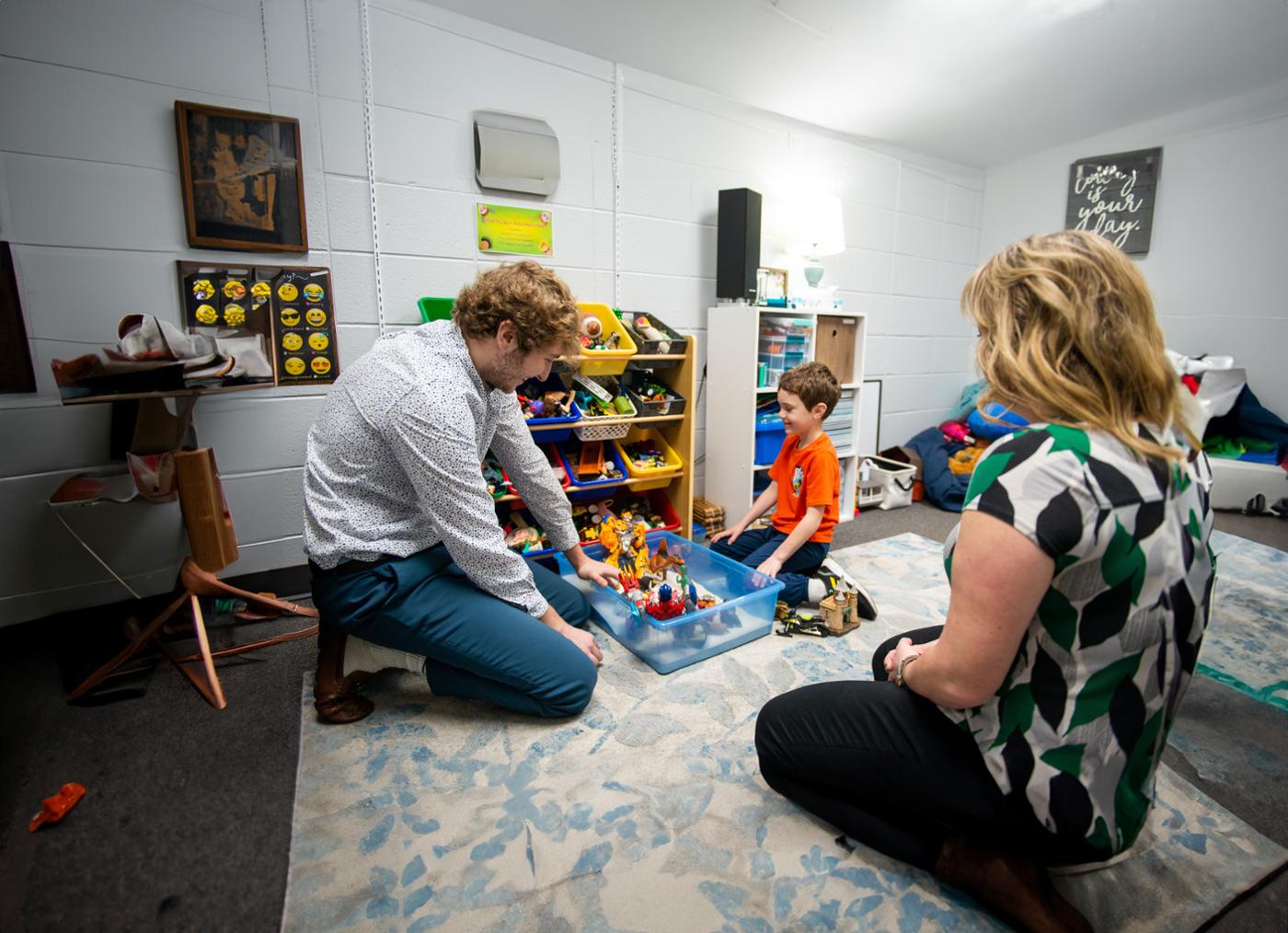Social Work Master's Degree
Influence systemic change, tackle societal inequalities, and advocate for marginalized communities.In-Demand Career
There is now a huge demand for social workers with advanced degrees in Southeast Kansas. The 16-county area has the lowest ratio of clinical social workers per resident in the state.
Two Tracks to a Graduate Degree
The program will have two courses of study: a one-year program for students who have a Bachelor’s in Social Work (“Advanced Standing”), and a two-year program for students who have a degree in something else (“Traditional Plan of Study”). For students in the two-year program, the first will be considered their generalist year and the second their clinical year. Students in the one-year program will proceed directly to their clinical year.
Quality and Convenience
Students will participate in coursework one day a week. This allows students the option to work while attending class and fulfilling practicum requirements. The practicum is similar to an internship and provides students with an opportunity to develop experience as social workers in a community based social service agency.
employment growth for social workers by 2029 according to the Bureau of Labor and Statistics
employment growth for social workers will happen in Kansas by 2026
of all mental health services in the U.S. are provided by social workers
professional social workers employed by the Department of Veterans Affairs, one of the largest employers of MSWs in the US
"Our MSW program offers a close-knit community of students and faculty. Caring, attentive faculty provide personalized support and the tools needed for academic and professional success."
Dr. Jeremey Wolfe, director of the MSW program
Social Work Careers
With a focus on evidence-based practice, our MSW program prepares social workers to critically analyze research and apply innovative interventions to address emerging challenges in the field. Graduates are prepared to hold positions in the following sectors:
- Mental Health and Counseling Centers: A Clinical Social Worker assesses, diagnoses, and provides therapeutic interventions for individuals dealing with mental health challenges.
- Hospitals, Hospice, and Home Health: A Medical Social Worker collaborates with healthcare teams to address patients' psychosocial needs, facilitate communication, and coordinate post-discharge care.
- K-12 Schools: A School Social Worker supports students' academic and social-emotional development, addresses behavioral issues, and collaborates with educators and families.
- Child Welfare: A Case Worker investigates reports of child abuse or neglect, assesses family situations, and develops plans to ensure child safety and well-being.
- Corrections: A Correctional Social Worker assists incarcerated individuals with reintegration into society, addresses behavioral issues, and provides support for rehabilitation.
- Probation and Parole: A Probation Officer monitors and supports individuals on probation, develops rehabilitation plans, and facilitates community resources for successful reintegration.
- Assisted Living Centers: A Geriatric Social Worker assesses and addresses the social and emotional needs of older adults in assisted living settings, coordinating services to enhance their quality of life.
- Addiction Treatment: A Substance Abuse Counselor provides counseling and support for individuals struggling with substance abuse, facilitating recovery and relapse prevention.
- Crisis Centers: A Crisis Intervention Specialist responds to immediate mental health crises, offering support and connecting individuals with appropriate resources.
- Governmental Agencies: A Social Services Program Manager oversees social service programs, ensuring effective delivery of services to the community.
“There is a demand for social work professionals here and a growing demand for services addressing social problems," said Kristen Humphrey, professor of Social Work and director of the Bachelor's program.
